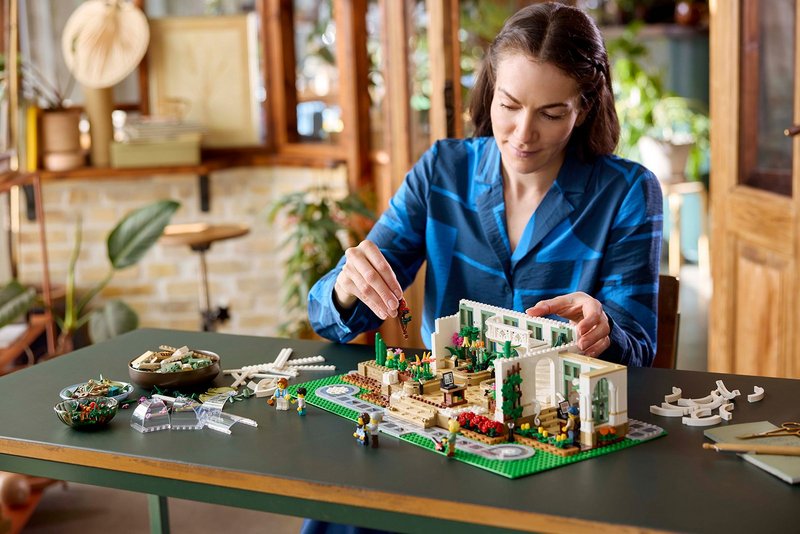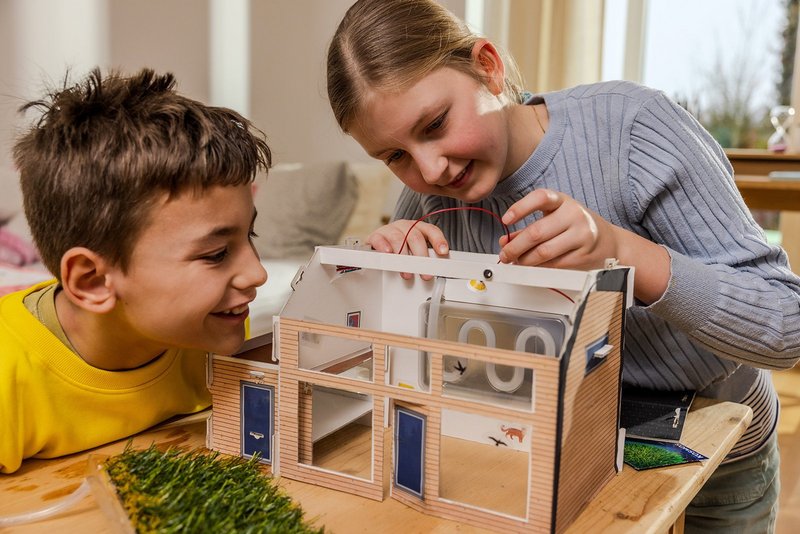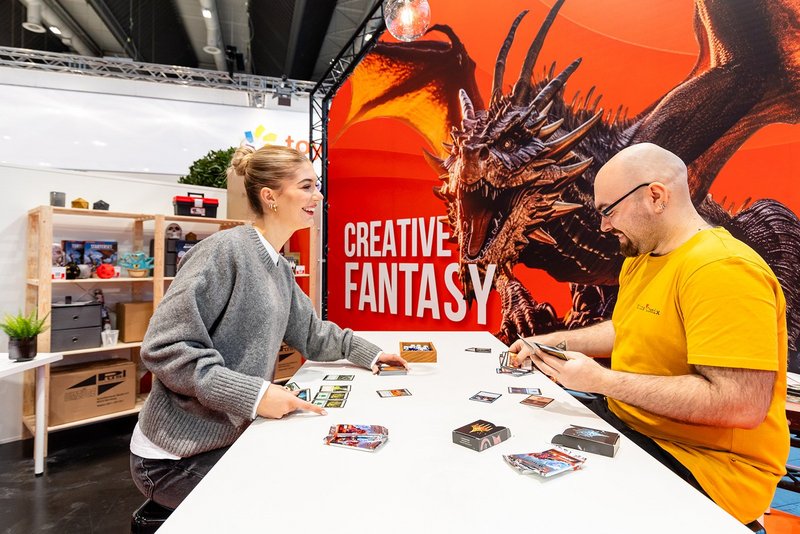
Constructing the future
Boundless opportunities based on traditional construction toys
By Peter Thomas
The standardised parts in traditional construction toys can be combined in new ways over and over again to build a huge variety of models. Two long-standing players in the construction toy market – eitech and fischertechnik – are demonstrating smart approaches to pairing this strength with current trends.
Modern solutions for timeless systems

Missing seven flat rods for a model crane? Need another gear pinion with 26 teeth? Since autumn 2024, anyone building models using eitech’s metal construction kit system can reach out directly to the manufacturer in such scenarios. That’s because the long-standing brand from Pfaffschwende in Thuringia has brought a concept once typical for construction toys into the 21st century: the sale of individual components.
Meccano cabinets are still the stuff of legend today for those within the hobby community. They could be found mainly in toy stores in the Anglo-Saxon world, but also opticians and other retailers, from the early 20th century. They contained supplies of perforated metal strips, brass cogs and special parts. This gave aspiring young engineers even more options and also helped to build customer loyalty. In Germany, Märklin and others used a similar principle in the heyday of the metal construction kit. Today, such supplies from many manufacturers can be sourced via webshops run by retailers or digital platforms.
New products and interoperability

According to Denny Felsberg, Head of Development at eitech, individual eitech components are instead being sold directly via the company’s own online store. “Our intention is clear – we want to ensure that you can get any part we have from us.” This is not an entirely new idea. eitech had already been offering smaller parts sets as add-ons. “For example, we had a bag with ten flat rods. Now you can order three or seven rods individually as well.” Felsberg says initial experience with the service has been good. “There is great demand among model builders.”
eitech is also taking building sets to a new level in its traditional range. Its app-controlled car exhibited as a prototype at the Spielwarenmesse 2024 will be launched on the market at the end of the year. The application will have a smartphone app (Android and iOS) available at no charge and a freely programmable circuit board for interoperability. With this, eitech wants to intentionally offer a platform that will appeal to not only the typical target market of model builders but also enthusiastic coders.
Innovation for every target group
eitech is also expanding its offering to include parts with powder coatings in different colours. In addition to its compact models with yellow and red elements already on the market, the company is now also adding small vehicle building sets with green and blue parts. However, the metallic surfaces (previously nickel-plated and now galvanised) continue to dominate. The new 130-piece spur differential is aimed at mechanics fans. It is offered as an accessory for all kinds of vehicle models, from the pick-up to the bulldozer.
From engineering newbies to experienced makers

fischertechnik is showing innovation with its system of plastic components with clamping technology: its new “Universal” starter construction sets are fully compatible with its existing range but stand out with their colours and shapes. New design pieces with smooth surfaces and curved features have been included among the white and orange components. They enable structures to be built that go beyond the original idea of the skeleton structure with rods and connecting elements. When developing this line, fischertechnik sought advice from experts in two key disciplines: the manufacturer says it involved both engineers and educators in the process. The Universal Pro and Universal Max kits are the first launched in the new series.

The new Maker kits from fischertechnik are geared towards adult fans. These allow the possibilities of the construction toy to be used to build often highly complex and mainly digitally controlled models. The concept is related to the manufacturer’s successful robotics kits, which are used in school science lessons and other settings. The main appeal for kidult tech fans lies in the functionality of, for example, the Omniwheels, which can be used as the basis for their own designs. There are numerous fascinating examples of this: the Omniwheels have incredible properties that can be deployed to get vehicles to turn on the spot and drive in all directions – including perpendicular to the longitudinal axis. This flexibility has long been a feature of real-world applications in the modern logistics landscape. The Maker Kit Bionic reflects another hot topic in mechanical engineering – the development of walking robots.
What motivates the company to produce Maker kits? “Imparting skills for the 21st century” is a key value at fischertechnik. Its coding and robotics sets for children and young people, such as the STEM Coding Pro and STEM Coding Max, are also in keeping with this. Only recently, fischertechnik received a Play for Change Award for its Smart Robots Pro set. The award celebrates achievements in preparing children and young people for future professional challenges through practical learning in the area of STEM (science, technology, engineering and mathematics).
Tradition meets modern challenges
However, this is clearly not a “digitalisation at any cost” approach on the part of the manufacturer based in Germany’s Black Forest. Fundamental knowledge, such as statics and mechanics, is conveyed in the current building kit range just as it was in the early days. Ultimately, the fun of building, testing and learning through play is all part of the construction toy’s DNA.
But there is one exception to the construction principle – namely the industrial models. In development and research, these are used to simulate real-world systems or entire factories – including controllers. The topics are highly relevant – from quality assurance with artificial intelligence through to agile production methods. The kinds of things that are driving the industry today. And anyone designing, building and commissioning such systems in reality is very likely to have played with construction systems as a child and teenager.
About the author:
Telling stories about technology and people: that’s what has been fascinating journalist, author, cultural studies researcher and lecturer Peter Thomas for more than 30 years. He has consistently focused on tech toys, from building sets to interactive digital educational toys. Having studied and worked as a research associate at university, Peter Thomas writes for daily newspapers, magazines and corporate publications in the German and English-speaking world. In addition to the world of play, he specialises in covering mobility, security, energy and medical technology.




